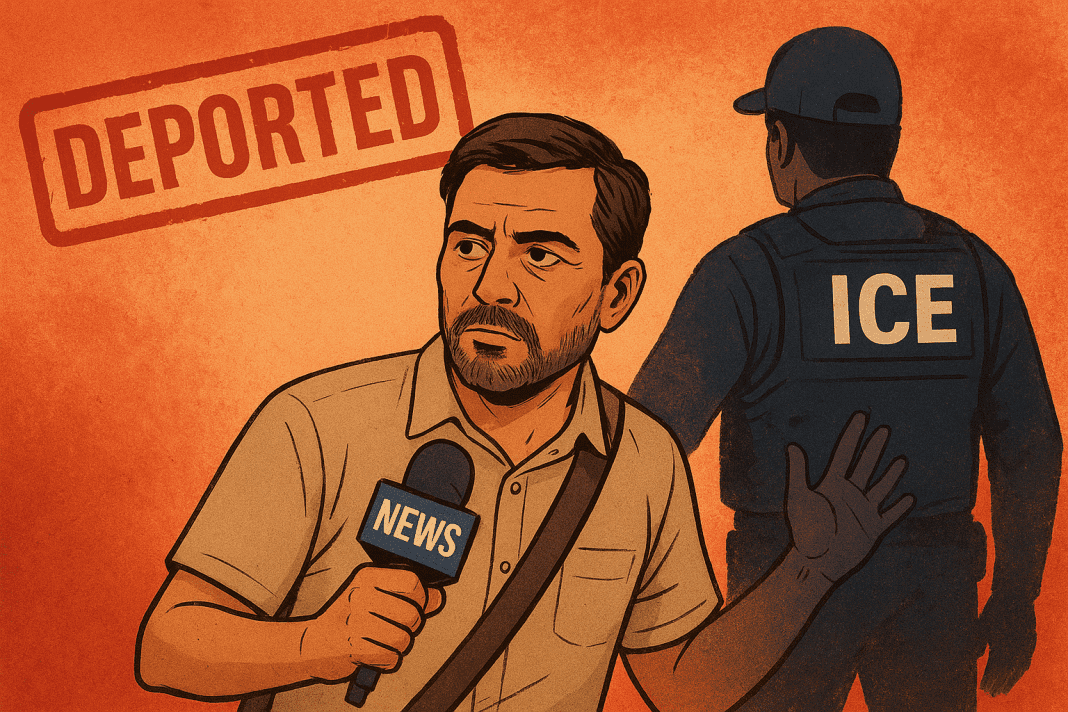A voice silenced behind bars
A well-known journalist is facing deportation after spending more than 100 days in immigration detention. His arrest came during the summer while he was covering a protest. Despite prosecutors dropping charges related to the protest, immigration authorities continued to hold him.
During this period, he has been transferred between five different detention facilities, making it difficult for his family to stay connected with him. His latest transfer placed him nearly five hours away from home. His family has followed him from center to center, holding on to hope while struggling with uncertainty.
The journalist’s case was recently reopened by the Board of Immigration Appeals. Officials issued an order for removal, citing an earlier voluntary departure agreement from more than a decade ago. However, records show that bond payments were made and an agreement with the government allowed him to stay with work authorization for years. The reopening of his case erased that permission, leaving him suddenly without status and facing immediate deportation.
Inside detention, his time has not been easy. He was once placed in solitary confinement and faced threats from other detainees. Some even demanded money from his family in exchange for his safety. Known for his work in journalism, his presence inside detention made him a target. His family was forced to pay for his protection, adding further strain on their already fragile situation.
Family struggles under weight of separation
For the family, his absence has left a painful void. They describe life as incomplete without him. His children, spouse, and siblings have all been impacted deeply. His youngest child, still in high school, is trying to cope with the absence quietly, while others in the family break down in private moments of grief.
Beyond emotional pain, the family is facing financial stress. The news outlet he founded is struggling without his leadership, putting them at risk of collapse. His eldest child has stepped up to manage operations in his absence, but with limited resources and ongoing family responsibilities, the challenge is overwhelming.
The situation is particularly hard for one family member who is still recovering from a serious medical condition. This individual had relied heavily on the journalist’s support during treatment and recovery. His absence has made health struggles worse and day-to-day life harder.
The family describes him as the anchor that held them together. Without him, they feel lost and adrift. His spouse struggles to sleep, his siblings fight back tears, and his children carry an invisible burden of fear and sadness.
Journalism under threat
This case has raised concerns because of the journalist’s profession. His work focused on covering law enforcement activity, immigration raids, and protests. He built a reputation as an independent voice who sought to hold power accountable.
His arrest came while he was recording at a protest, alongside other reporters. Unlike others, he remained in detention after criminal charges were dismissed. This has led to questions about whether his work as a journalist played a role in his prolonged detention.
Journalists play a crucial role in ensuring that communities stay informed about issues of safety, justice, and government action. By documenting events and giving people access to information, they help hold authorities accountable. The detention and possible deportation of a journalist raises concerns about freedom of the press and the treatment of those who report on sensitive topics.
For now, the journalist remains in custody, awaiting deportation to a country he left many years ago. His family continues to visit, travel long distances, and navigate a painful reality that grows heavier with each passing day.
